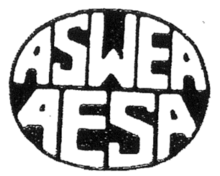Draft:Association of Social Work Education in Africa
Submission declined on 17 October 2024 by Memer15151 (talk).
Where to get help
How to improve a draft
You can also browse Wikipedia:Featured articles and Wikipedia:Good articles to find examples of Wikipedia's best writing on topics similar to your proposed article. Improving your odds of a speedy review To improve your odds of a faster review, tag your draft with relevant WikiProject tags using the button below. This will let reviewers know a new draft has been submitted in their area of interest. For instance, if you wrote about a female astronomer, you would want to add the Biography, Astronomy, and Women scientists tags. Editor resources
|  |
| Submission declined on 2 May 2024 by Clearfrienda (talk). This draft's references do not show that the subject qualifies for a Wikipedia article. In summary, the draft needs multiple published sources that are: Declined by Clearfrienda 6 months ago.
|  |
| Submission declined on 23 January 2024 by DoubleGrazing (talk). This draft's references do not show that the subject qualifies for a Wikipedia article. In summary, the draft needs multiple published sources that are: Declined by DoubleGrazing 9 months ago.
|  |
 Comment: There are not enough independent secondary sources to pass WP:GNG. Most are primary and some are associated with the subject; these sources should be used carefully. Find more secondary sources to establish notability. UserMemer (chat) Tribs 16:24, 17 October 2024 (UTC)
Comment: There are not enough independent secondary sources to pass WP:GNG. Most are primary and some are associated with the subject; these sources should be used carefully. Find more secondary sources to establish notability. UserMemer (chat) Tribs 16:24, 17 October 2024 (UTC)

The Association of Social Work Education in Africa, or ASWEA, was formed 1965[1]and operated until 1989[2]. Its role was to promote social development in Africa[2] by developing curricula, case studies and literature [3]. It had consultative status with the Organisation of African Unity (OAU), now the African Union (AU). The organisation was formed in Alexandria, Egypt although most of its members were from sub-Saharan Africa. At the time it was formed, African countries, except Ethiopia which had successfully resisted colonisation, were under colonial occupation with a few having gained independence. The objectives of ASWEA were to address issues related to social work education, including dominance of Western social work curricula and provide opportunities for member schools to meet regularly to discuss social work’s role in national development planning.[4] [5]
In 1989 the organisation closed mainly because of unrest in Ethiopia where it was based. ASWEA did not build capacity to survive without financial coal support from outside, including support from the OAU. When it closed, it hoped to 'open soon' but this did not happen[6]. It was succeeded by the East and Southern Association of Schools of Social Work (ESASS) which only lasted a year, and folded. The ESASS covered two regions of the continent.
ASWEA's legacy was the creation of a social model for development[7]. Their work in the 1970s, resulted in an understanding that social work constructed in western countries was not suitable for Africa but a new social development approach was desirable[8][9].
ASWEA published the Journal for Social Work Education in Africa.[5]
Some of the key people in the founding and administration of the ASWEA were Selassie Seyoum Gebre and Arega Yimam, both from Ethiopia[10].
References
[edit]- ^ Yimam, A. (1990). Social Development in Africa, 1950-1985: Methodological Perspectives and Future Prospects. Aldershot: Gower.
- ^ a b Mwansa, L.-K. (2011). Social Work Education in Africa: Whence and Whither? Social Work Education, 30(1), 4–16. https://doi.org/10.1080/02615471003753148
- ^ "2017". www.africaknowledgeproject.org.
- ^ https://africasocialwork.net/association-of-social-work-education-in-africa-aswea-1971-to-1989/
- ^ a b ASWEA. (1986). Association for Social Work Education in Africa. Addis Ababa: ASWEA publication
- ^ Kreitzer, L. (2023). Decolonizing Social Work Education in Africa: A Historical Perspective Gray, M., Coates, J., Hetherington, T., & Yellow Bird, M. (2013). Decolonizing social work. Burlington: Ashgate.
- ^ International Planned Parenthood Federation (IPPF) (1978). Development of a Training Curriculum in Family Welfare by ASWEA Expert Group. African Regional Office of the IPPF
- ^ Chogugudza, C. (2009). Social Work Education, Training and Employment in Africa: The case of Zimbabwe. Ufahamu: A Journal of African Studies, 35(1). http://dx.doi.org/10.5070/F7351009559 Retrieved from https://escholarship.org/uc/item/1vm25226
- ^ Asamoah, Y. W., & Beverly, C. C. (1988). Collaboration between Western and African schools of social work: problems and possibilities. International Social Work, 31(3), 177-193. https://doi.org/10.1177/002087288803100304
- ^ Kebede Wassie (20222) Gbreselassie, Seyoum. Encyclopedia of Social Work. Oxford University Press.

- in-depth (not just brief mentions about the subject or routine announcements)
- reliable
- secondary
- strictly independent of the subject
Make sure you add references that meet all four of these criteria before resubmitting. Learn about mistakes to avoid when addressing this issue. If no additional references exist, the subject is not suitable for Wikipedia.